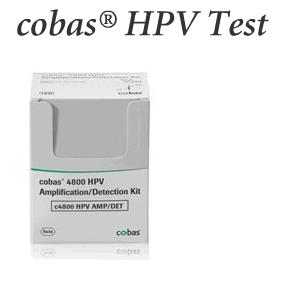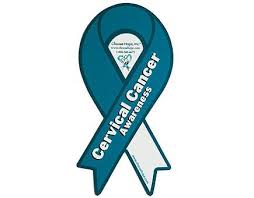Best Cervical Cancer Screen: Roche cobas® HPV or the Pap Smear?
Courtesy of colLABoration: A Sharing of Insights for Enhancing Laboratories and Laboratory Informatics
Advisory Panel Recommends HPV as First-line Screen
 An advisory panel for the Medical Devices Committee of the FDA voted unanimously to approve Roche’s cobas® HPV test as a first-line screening for cervical cancer in women age 25 and older. While the FDA will have the final say, advisory committee recommendations are typically followed.
An advisory panel for the Medical Devices Committee of the FDA voted unanimously to approve Roche’s cobas® HPV test as a first-line screening for cervical cancer in women age 25 and older. While the FDA will have the final say, advisory committee recommendations are typically followed.
Prior to this recommendation, for women between the ages of 30 to 65, the Roche HPV test was recommended as an adjunct test to the Pap smear or for women aged 21 and older who have had an abnormal Pap smear result. The HPV test had not been approved for stand-alone screening, until now.
Current Cervical Cancer Screening Guidelines
Cervical cancer screening, since the introduction of routine Pap smears in the ‘70s, has been one of public health’s true success stories—dramatically decreasing the incidence of a disease that at one time caused more deaths among American women than any other form of cancer.
 Current U.S. guidelines for cervical cancer screening recommend that women between the ages of 30 to 65 have both the HPV test and the Pap smear every five years, or Pap testing alone every three years. Women between the ages of 21 and 30 are advised to have a Pap screen every three years. Following proper cervical cancer screening recommendation is important because The American Cancer Society estimates that 2014 will bring 12,360 newly diagnosed cases of cervical cancer and result in 4,020 deaths.
Current U.S. guidelines for cervical cancer screening recommend that women between the ages of 30 to 65 have both the HPV test and the Pap smear every five years, or Pap testing alone every three years. Women between the ages of 21 and 30 are advised to have a Pap screen every three years. Following proper cervical cancer screening recommendation is important because The American Cancer Society estimates that 2014 will bring 12,360 newly diagnosed cases of cervical cancer and result in 4,020 deaths.
HPV Closely Linked to Cervical Cancer
HPV, a sexually transmitted virus that causes genital warts in men and women, is believed to cause the majority of cervical cancers. Certain strains (16 and 18) account for 70% of cervical cancer cases.
The Roche HPV test is able to detect a variety of high-risk HPV types, including 16, 18, 33, 35, 39, 45, 51, 52, 56, 58, 59, 66, and 68. Women who test positive for the two high-risk HPV strains are advised to undergo colposcopy to allow the physician a clear view of the vulva, vagina and cervix and collection of additional samples for further testing.
Mixed Reviews
 HPV Testing Shows Advantages Over the Pap Those in support of HPV testing as a cervical cancer screen feel that the testing is far more objective and consistent than the Pap smear because the Pap smear requires human interpretation, resulting in variation between laboratories.Studies have shown that the HPV test is much more sensitive in detecting precancerous lesions. Additionally, a negative result on the HPV test is a better predictor than a negative Pap test to indicate that a woman will remain free of lesions for the next three years. A negative HPV predicted a lower three-year risk of cervical intraepithelial neoplasia 3 (>CIN3) (which indicates advanced cervical dysplasia or cancer) than a negative Pap, lending credence to the conclusion that the HPV test alone is superior to the Pap smear.
HPV Testing Shows Advantages Over the Pap Those in support of HPV testing as a cervical cancer screen feel that the testing is far more objective and consistent than the Pap smear because the Pap smear requires human interpretation, resulting in variation between laboratories.Studies have shown that the HPV test is much more sensitive in detecting precancerous lesions. Additionally, a negative result on the HPV test is a better predictor than a negative Pap test to indicate that a woman will remain free of lesions for the next three years. A negative HPV predicted a lower three-year risk of cervical intraepithelial neoplasia 3 (>CIN3) (which indicates advanced cervical dysplasia or cancer) than a negative Pap, lending credence to the conclusion that the HPV test alone is superior to the Pap smear.- The Cons Although, based on their recommendation, the advisory board clearly thought that the positives outweighed the negatives; there remain those who have concerns. An HPV infection can be transient and a positive HPV test does not always indicate cervical cancer or dysplasia.A Quest Diagnostics Health Trends study indicated that screening using only HPV testing could potentially miss 13.5% of cervical cancer instances annually—cases that would have been caught with co-testing that included a Pap smear. The study also found that nearly 5% of women whose Pap test showed advanced cervical dysplasia or cancer (>CIN3) had a negative HPV test. So while the HPV test seems like an advance in technology, there are concerns.
So What Happens From Here?
The FDA will make the final decision on whether to accept the panel’s recommendation. Based on this, professional medical societies will have to decide if this recommendation meets the needs of their patient population. Many providers will not change ordering patterns until the professional societies lend their support.
Most likely, testing changes will not happen quickly. Yet, some clinician ordering patterns could conceivably change based on the recommendation, affecting cytology and molecular diagnostics departments. Even if the change is down the road, it is prudent for these types of laboratories to be aware of current guidelines and recommendations in order to make astute decisions regarding their future.
Orchard’s Commitment
Orchard is committed to keeping you informed and being a trusted resource that you can turn to for industry-related education. And as always, we welcome your feedback. Follow us on Twitter at @OrchardSoftware, and feel free to respond to this post by clicking the “Comment” link at the bottom, or by emailing us at news@orchardsoft.com.
Kim Futrell, MT (ASCP) Products Marketing Manager Orchard Software Corporation
Source: Orchard Software

































